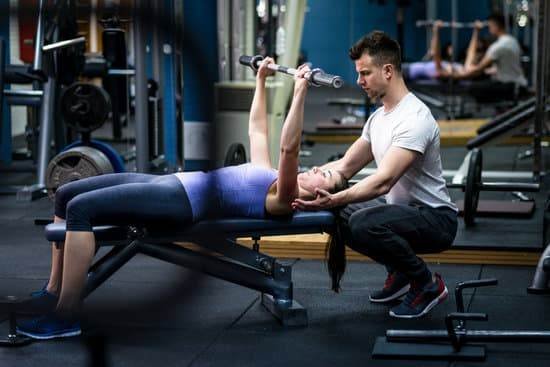Introduction
Personal Trainer Mentorship is a system whereby an experienced trainer provides guidance, support, and advice to a less experienced trainer. It is an opportunity to learn from a professional who has years of experience and knowledge which can be utilized in the development of the mentee’s fitness industry career.
The primary benefit of personal trainer mentorship is its focus on building skills and knowledge in the area of fitness coaching. A mentor can provide valuable insights into the nutrition aspect that goes hand-in-hand with physical training, as well as advice on exercise programming to achieve individual goals. Additionally, mentors can provide personalized guidance on how to market oneself as a trainer, such as leveraging social media for greater visibility and using effective strategies for onboarding new clients.
Mentors may also identify areas in need of improvement in their protégé’s skill set and provide options for improving them. This could include providing resources such as books, podcasts or websites to help develop their knowledge base or recommending certifications or continuing education opportunities that could benefit them professionally. In addition, the mentorship relationship offers support in navigating difficult client issues and managing workloads so that trainers can avoid burnout while still delivering stellar service.
Ultimately, engaging in this type of supportive relationship between individuals offers immense personal growth opportunities while also addressing many practical concerns relating to running a successful personal training business!
Building the Mentoring Relationship
Personal trainers who are on the path to becoming quality and successful mentors must be willing to build strong relationships with their mentees. Building a relationship with a mentee can take time, but having open communication and available resources is key to success. First, it’s important for both parties to discuss the expectations and goals of the mentor-mentee relationship. They should set aside designated times for chatting and meeting virtually or in person. This gives both parties a chance to get comfortable communicating with each other and asking questions or for advice. Additionally, photographers should be encouraged and expected to stay in touch regarding updates, progress, successes, and challenges faced along the way. Finally, by providing practical tools such as journals, planners/checklists and an online platform such as Skype that allow meaningful collaboration can help foster ideas throughout the mentoring journey. Mentors should also remember that investing in their mentees’ emotional support is equally as valuable as providing personal training advice.
Crafting a Mentor-Mentee Agreement
Creating a strong mentor-mentee agreement is an essential component of successful personal trainer mentorship. A mentor-mentee agreement is a written contract that outlines the expectations, roles and responsibilities of both parties involved in the mentorship. It should be created collaboratively, born out of mutual respect and understanding between mentor and mentee. In order to create the most effective agreement possible, it is important to include specific details about the scope of mentoring activities, meeting frequency, topics covered during meetings, setting achievable goals and benchmarks for progress and involvement in decisions related to professional development.
In addition to outlining basic expectations for both parties in the agreement, it is important for the mentor-mentee agreement to draw up protocols for how communication will take place throughout the relationship. This might include defining communication channels – such as via email or phone calls – and setting up regular check-in meetings throughout the duration of mentorship so both parties can track progress and make adjustments as needed. Furthermore, it is wise to set ground rules regarding availability so that mentors are prepared if they need more time than is allotted or if they need additional resources from their mentees. Lastly, making sure there are clear termination rules defined in case either party wants to end their relationship so that there are no hard feelings between them. By clearly outlining standards through a mentor-mentee agreement, those involved in personal training relationships can ensure that they have real clarity on what their respective duties entail.
Outlining Goals and Drawing Up Strategies for Achieving Them
A personal trainer mentorship can be an invaluable tool in helping aspiring trainers reach their goals. An experienced mentor can help personal trainers draw up strategies for achieving their short-term and long-term objectives. This may involve assessing a trainer’s current skill set, considering the industry trends, outlining clear action plans to gain necessary skills, and mapping out viable career trajectories based on individual strengths.
The mentor will use their experience to evaluate the goals of a trainee and develop personalized strategies that are tailored to fit each individual’s needs. For instance, they can provide advice on areas such as networking and building relationships with potential clients or employers, developing marketing strategies to increase visibility, understanding regulations and policies that affect the profession, or finding resources that can be used for learning new techniques. Additionally, mentors have valuable insights into any appropriate certifications or other credentials needed in order to become a certified personal trainer.
The mentor will also act as an advocate by providing honest feedback and encouraging the trainee whenever feasible. By taking advantage of the experience of a professional mentor, aspirants may better equip themselves with the skills required to find success in their chosen career path in personal training. A solid understanding of practice directions and fundamentals makes this kind of guidance invaluable when looking at long-term prospects in the field.
Developing Professional Habits for Success
A personal trainer mentorship is a valuable tool in helping to develop good professional habits that can lead to career success. A mentor can provide an individual with tips and advice on how to navigate the challenges of the job, find successful strategies for training clients, and stay inspired. They are also a source of motivation and support, pushing their mentee to reach their goals and ultimately become a more successful personal trainer. Through a mentorship program, people can learn from someone who has already achieved success in the industry, giving them the knowledge and skills to help them become self-sufficient in their own practice. Mentors can help to align your values with your work ethic, instill confidence in yourself and your abilities, along with developing communication strategies for working with clients. Working with a mentor — either one-on-one or through an online program — gives guidance and feedback on cases you may have difficulty managing alone. In addition to helping you improve as a professional, mentors can introduce you to potential employers or leads in the fitness community too. Having someone experienced provide personalized direction helps enhance chances of success by teaching what works best when dealing with different fitness levels while learning how to continue growing professionally – all while having fun!
Utilizing Digital Platforms and Communication Tools
Personal trainer mentorship is an important part of learning and gaining experience in the fitness industry. With digital platforms and communication tools, it is easy to connect online with other seasoned professionals who can provide valuable insights and advice. With the right mentorship, personal trainers can learn best practices, exchange ideas, develop their craft, and stay up-to-date on industry trends.
Mentoring relationships between a mentor and their student typically involve the mentor offering guidance through real-life advice, guidance about career goals, strategies for dealing with challenges that come up in any personal training business, as well as providing support whenever it’s needed. A digital mentor may counsel their student on how to use specific software or utilize social media platforms to broaden their reach and attract new clients. They may also offer tips on creating online marketing campaigns or engaging potential customers in meaningful conversations. Digital mentors can also be great sources of motivation to help keep their students focused on achieving success. Additionally, some mentors may even give the occasional pep talk or offer refresher courses in more technical aspects of the personal training business such as anatomy or biomechanics. Moreover, having an experienced teacher living nearby isn’t essential anymore, you can ask for assistance from all around the world if you’re set to look for one on a digital platform! Mentorship programs funded by governing bodies are ideal ways for personal trainers were starting out in this rewarding yet challenging career to gain access to additional education from highly experienced professionals whose knowledge and expertise would otherwise be out of reach because of cost barriers. With this form of support available more than ever before thanks to an array of digital tools and platforms at our fingertips
Setting Reasonable Prices and Optimizing Revenue
One way for personal trainers to optimize their revenues and make sure they are charging reasonable prices is by conducting their own research. Trainers should look into the going rates in their area and compare them to the prices they are currently charging. Additionally, they should have a good understanding of what competitors in the field are offering so they can determine if they are being fairly compensated for what services they offer.
Another way to ensure that trainers receive optimal revenue and charge reasonable prices is to survey current clients and potential customers. Surveying will allow trainers to get an idea of what people would be willing to pay given the same level of service being offered. This can also help trainers determine if their pricing is too low or too high, allowing them to adjust accordingly.
It may also be helpful for personal trainers to consider providing additional services or packages such as group sessions, longer-term plans, or discounted rates for multiple sessions at once. Group pricing could encourage more people to purchase a trainer’s services as opposed to trying solo sessions which may be more cost prohibitive for some clients. Additionally, offering discounts for bulk purchases could incentivize individuals who need long-term guidance from one trainer instead of searching for cheaper options elsewhere. This can create more loyalty from customers both old and new which could, in turn lead to better revenues over time.
Summarizing the Benefits of Mentorship for Personal Trainers
Mentorship is highly beneficial for personal trainers, as it helps them develop their skills and knowledge in the field. By partnering with a mentor, personal trainers can learn best practices, stay up to date on advancements in the health and fitness industry, gain access to resources not otherwise available, and advance their career strategy. Mentors provide an experienced perspective which can help personal trainers find creative solutions or strategies that would otherwise be overlooked. With experience-based advice and support from a knowledgeable mentor, personal trainers often feel more confident and capable of achieving their goals. Other benefits include developing strong relationships with colleagues and other senior professionals in the health and fitness world; having a network of contacts is crucial for leading successful careers. Finally, mentors can act as motivators for personal trainers; their encouragement can go a long way in helping build self-confidence and boosting morale during challenging times.

Passionate about providing useful information to anyone with an interest in the field of Personal Training, I strive to pass on to our readers quality information and to answer any questions about Personal Trainers, the work they do and how to become one.





